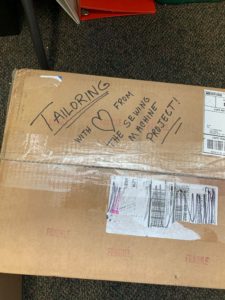 The task has grown little by little. It began (for me) when Nancy called and asked if I’d like to meet Jane. Jane was in the United States working with the team at IndiMark to gather resources for her Masai community in Kenya. She mentioned that her group was filling a container with supplies and wondered whether she might apply for some sewing machines to add to the load. She completed the application process and our Board awarded 15 electric machines to her group.
The task has grown little by little. It began (for me) when Nancy called and asked if I’d like to meet Jane. Jane was in the United States working with the team at IndiMark to gather resources for her Masai community in Kenya. She mentioned that her group was filling a container with supplies and wondered whether she might apply for some sewing machines to add to the load. She completed the application process and our Board awarded 15 electric machines to her group.
Then we learned about Ara, who works with an organization called Health by Motorbike. Ara was also gathering supplies–these for another Kenyan village with a tailoring school. They have no electricity and typically use treadle machines. After applying, Ara was awarded 10 non-electric machines.
And so we got to work.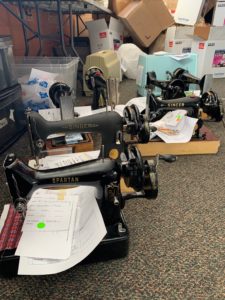
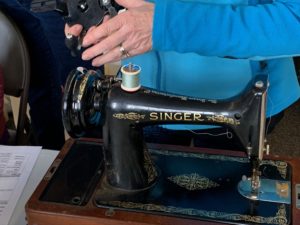 Annette and Nancy met and converted 10 older machines to hand crank, a skill they’d learned for applications such as this. We had 10 machines on the shelf that would work and they converted them all.
Annette and Nancy met and converted 10 older machines to hand crank, a skill they’d learned for applications such as this. We had 10 machines on the shelf that would work and they converted them all.
Our Machinists Union met every Monday afternoon, testing and cleaning the electric machines until they were all lined up on the counter, ready to go. Annette, Claudia, Trudy, Karen, Nancy, Kate…week after week we worked until all of the machines were ready to go.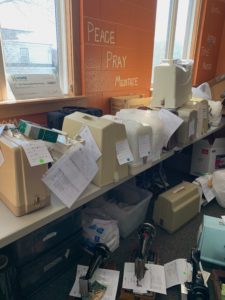
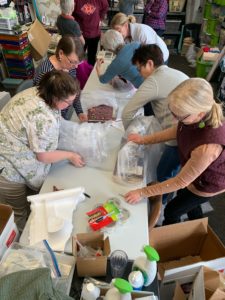 Karen and Annette came in on their own to oil and clean the pretty little hand crank machines and soon, they too were lined up, ready for deployment.
Karen and Annette came in on their own to oil and clean the pretty little hand crank machines and soon, they too were lined up, ready for deployment.
Linda and Trish met and packed boxes of fabric and sewing tools to accompany each set of machines.
And then, we remembered, wait a minute, they typically use treadles at Ara’s location…machines set into tables. Our little hand crank machines are designed to sit ON a table. They have no tables. So I called a contact with whom I hadn’t connected in years–Jerry at Arrow Furniture–and told him what was going on. Like an old friend, Jerry listened with enthusiasm. After checking his inventory, Jerry agreed to donate 10 folding sewing tables for the tailoring school.
On Monday of this week a team of 10 met to pack up the machines. Cheryl, Karen, Karen, Nancy, Connie, Kathy, Claudia, Kate, Linda and Trish. Working together, laughing and talking we made fast work of the task and the machines were ready to travel. Lined up in the hall, they radiate hope and promise.
Jerry’s tables will arrive later this week.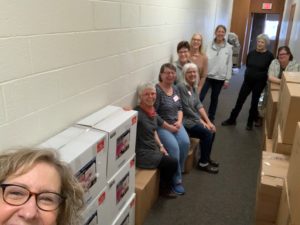
And on Friday we’ll load up some cars and deliver everything to the container site.
We cannot walk in this world alone. We’re not designed that way. We are made to walk with one another, to ask for help when we need it, to give help when we can. As I reflect on this process I see the many hands held out, ready to assist, waiting to be asked. I see the smiles that come from giving.
I see the community we continually recreate.

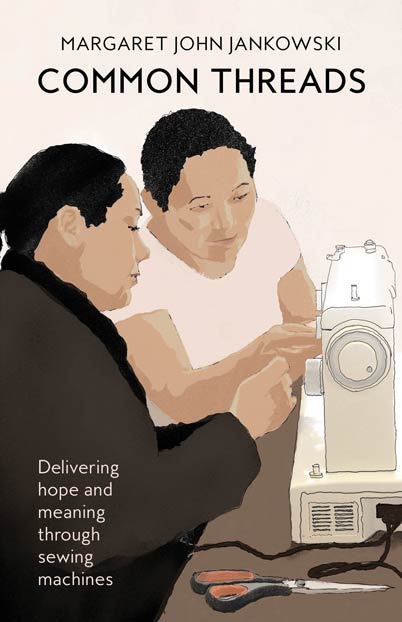
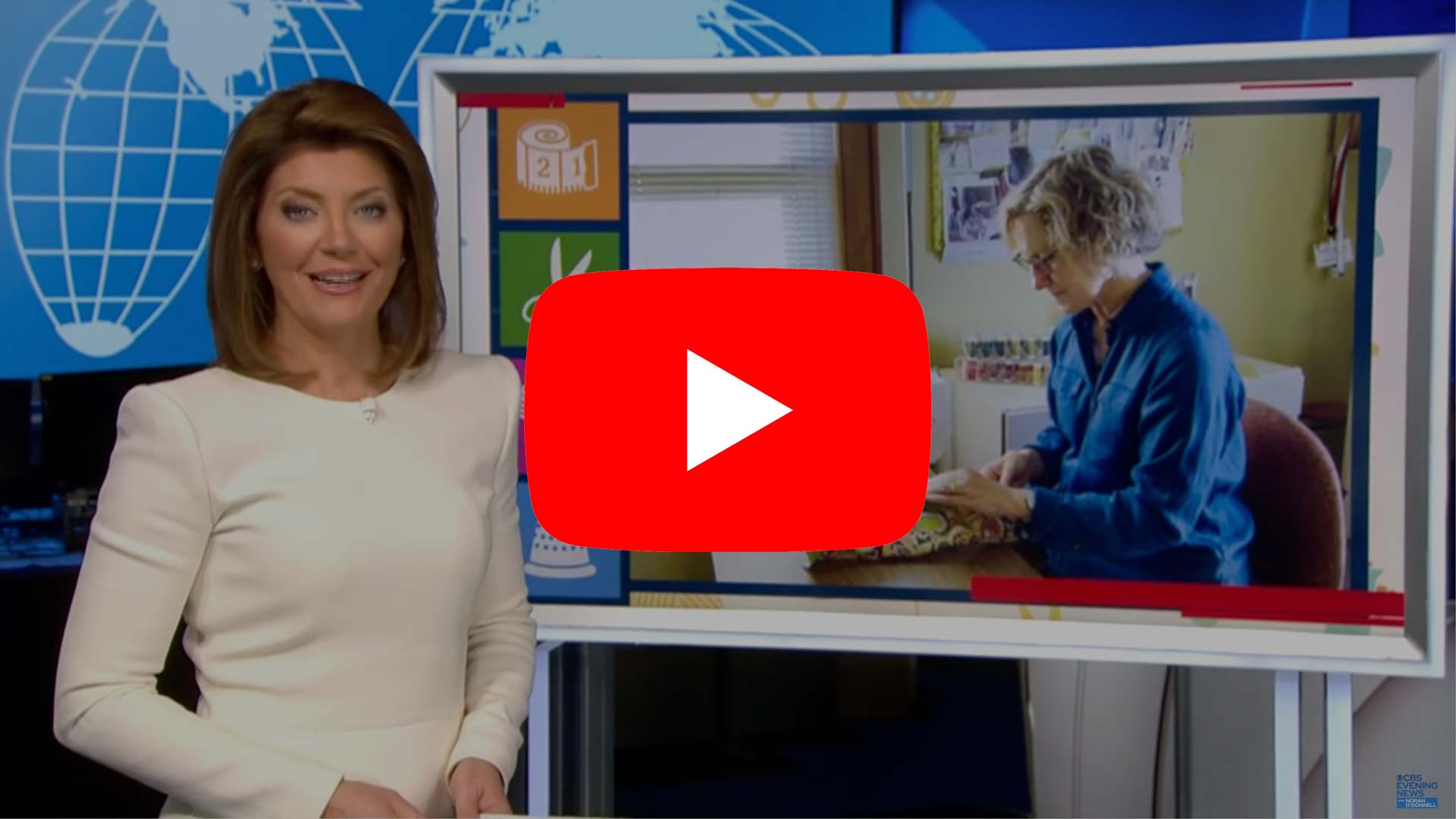
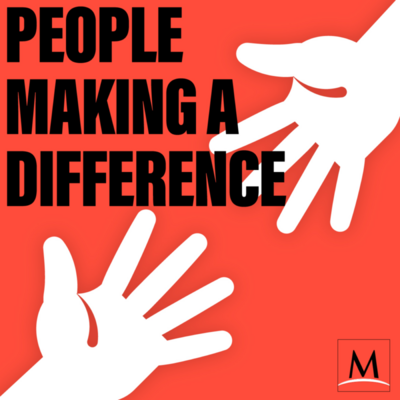
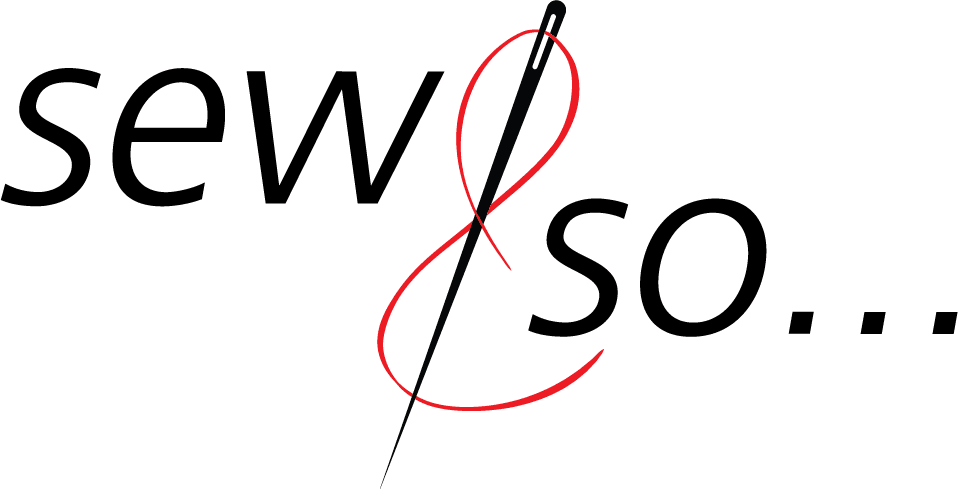
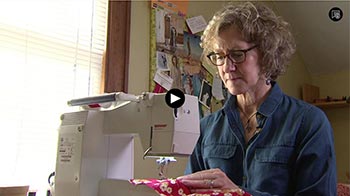
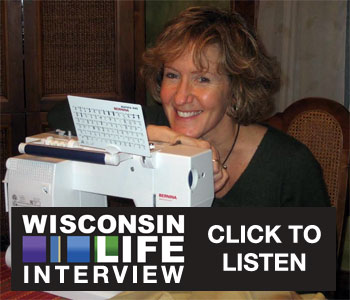
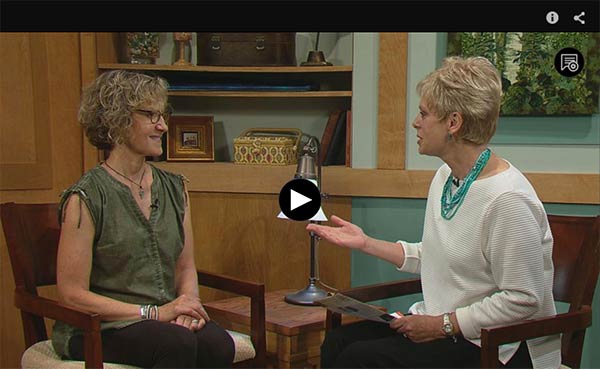
I want more info
I just love your ability to find the missing pieces and make them fit!
I am former chair of Brother’s Brother Foundation and still on the BBF board’s Executive Committee. We are supporting feminine hygiene in developing countries so that poor girls can stay in school during their periods. I am collecting old Singer models 15, 66, 99, and 192 for conversion to hand crank machines for use in rural places without electricity.
I am interested in knowing what hand cranks you are using. I have converted using Chinese copies of the old Singer hand cranks. These are said to require installation on machines with spiked hand wheels but I have found that with an angle grinder I can successfully grind a notch in the solid hand wheels to accept the hand crank.
We have shipped electric and hand crank machines.
I would like to know more about your experience.
Hi Phil, We too are using the Chinese copies of the Singer hand cranks. We have had the good fortune of finding a metal worker who is making those notches in our hand wheels as well. We were happily surprised at how uncomplicated the conversion was! Thank you for the kindness you are pouring into the world.